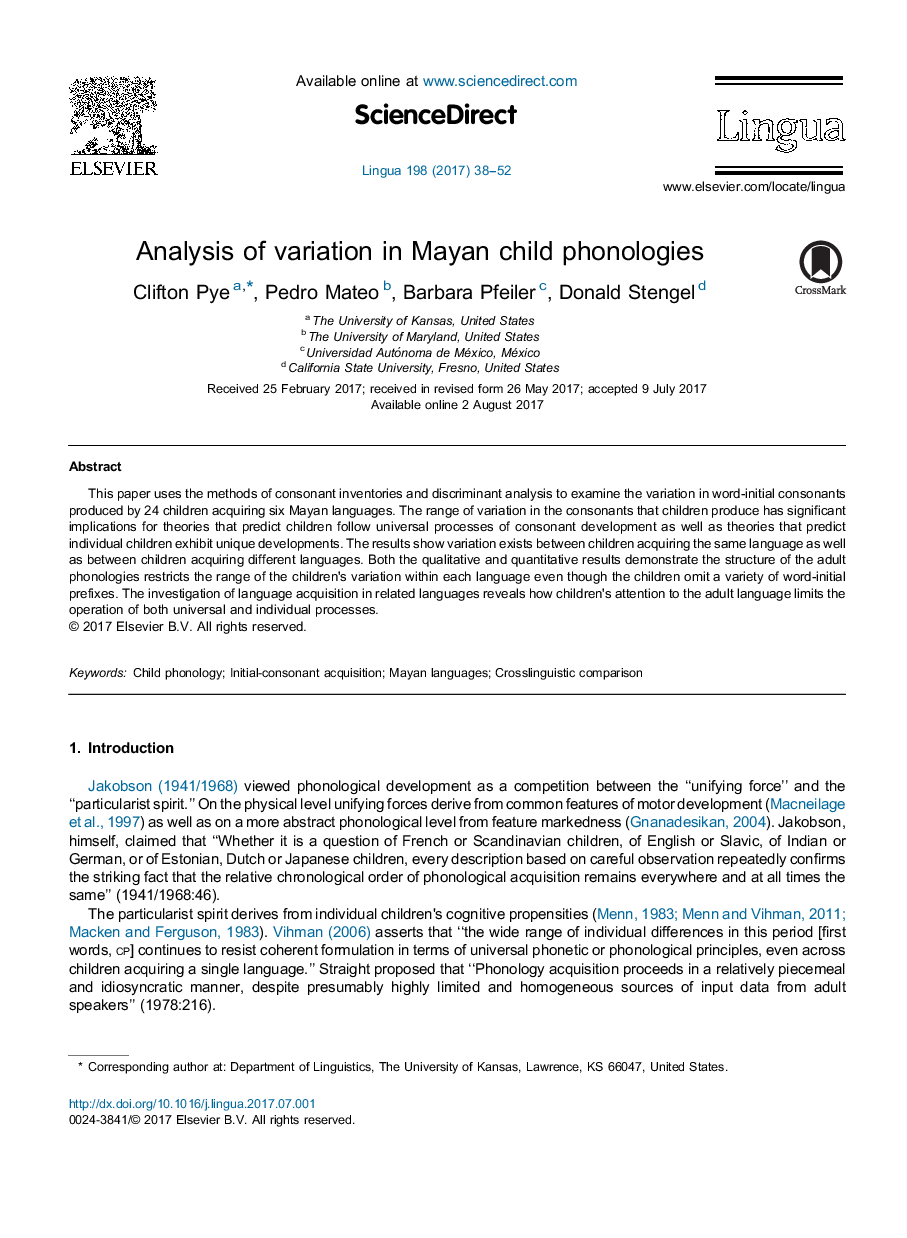| Article ID | Journal | Published Year | Pages | File Type |
|---|---|---|---|---|
| 5042955 | Lingua | 2017 | 15 Pages |
This paper uses the methods of consonant inventories and discriminant analysis to examine the variation in word-initial consonants produced by 24 children acquiring six Mayan languages. The range of variation in the consonants that children produce has significant implications for theories that predict children follow universal processes of consonant development as well as theories that predict individual children exhibit unique developments. The results show variation exists between children acquiring the same language as well as between children acquiring different languages. Both the qualitative and quantitative results demonstrate the structure of the adult phonologies restricts the range of the children's variation within each language even though the children omit a variety of word-initial prefixes. The investigation of language acquisition in related languages reveals how children's attention to the adult language limits the operation of both universal and individual processes.
